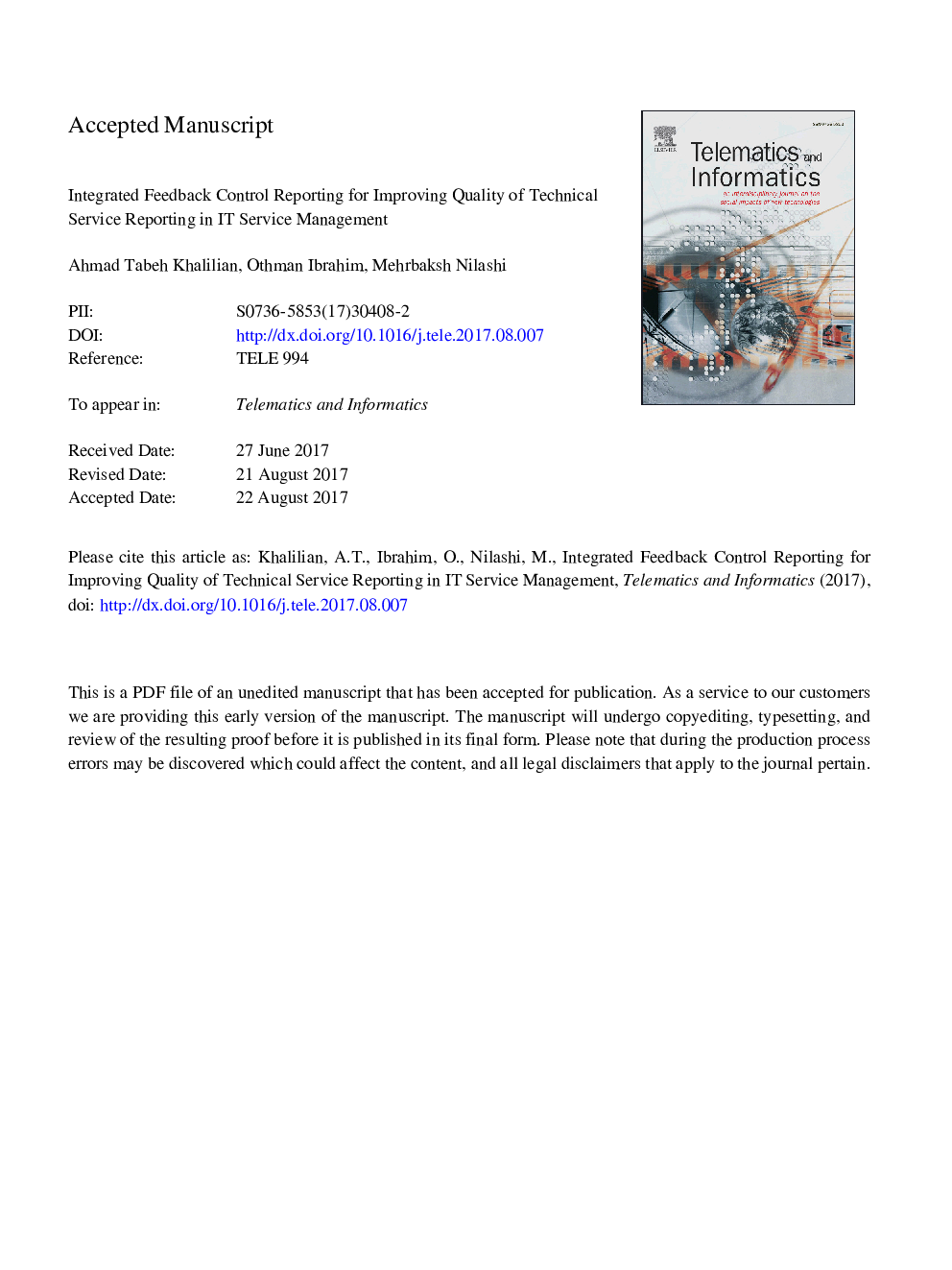| Article ID | Journal | Published Year | Pages | File Type |
|---|---|---|---|---|
| 6889906 | Telematics and Informatics | 2017 | 55 Pages |
Abstract
Service Reporting is an essential part of Service Level Management (SLM) in IT Service Management (ITSM). These SLM reports show Service Quality status in compare to Service Level Target (SLT) based on Service Level Agreement (SLA). However, producing Technical Service Reports (TSRs) for SLM has Data Quality (DQ) challenges when IT services of a large enterprise are outsourced to a large IT service provider (ITSP). In fact, sources of technical metrics in these reports are coming from huge, unverified and non-normalized system-generated events and logs in a large enterprise environment. In addition, there are lacks of configuration items and service information meta-data that are essential for producing these SLM reports. These challenges lead to low intrinsic and contextual DQ of reports that destroy customer's trust and management visibility which lead to Service Quality (SQ) issues and financial penalties. This research used Action Design Research (ADR) methodology and insider participant observation, focus group, interview and questionnaire data gathering and content analysis. Design, actions and data collection are done in and from a Multi-National Company (MNC) in Malaysia that provides IT services to one of the top 10 biggest enterprises in the world, during 4Â years of research. The research implemented artifact is an integrated reporting system. It used Feedback Control System (FCS) theory and ITSM concepts to create Reports Data Quality Improvement Loop (RDQIL) to improve TSRs' DQ. The research output is an ensemble artifact which formalized in the class of problems, class of solutions and set of design principles that consist of new Hybrid Normalize Data Warehouse (HNDW) architecture and Integrated Feedback Control Reporting (IFCR) process model. The importance of research emerges by improving SQ and reducing the risks of financial penalties by providing complex event processing and service reporting integrated into Operation processes. The research's design principles and IFCR process model create RDQIL that improves TSRs' DQ in large ITSPs which lead SQ improvement and prevent financial penalties.
Related Topics
Physical Sciences and Engineering
Computer Science
Computer Networks and Communications
Authors
Ahmad Tabeh Khalilian, Othman Ibrahim, Mehrbaksh Nilashi,
